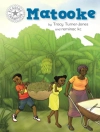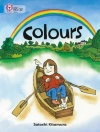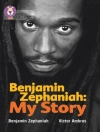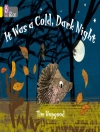‘This book addresses the needs of teachers at every level in their teaching careers, as well as those who support and work with teachers. The processes can be used individually to guide professional learning and teaching, or within almost any professional development structure for facilitating group learning. ‘
-Katherine E. Stiles, Senior Program Associate, West Ed
‘This resource supports continual professional growth of both content and pedagogical knowledge and will help teachers focus on the appropriate research. What a time saver this is!’
-Rhonda Naylor, National Board Certified Mathematics Teacher Campus Middle School, Englewood, CO
Attain the tools to plan and incorporate standards-based instruction that positively impacts student achievement!
Becoming an accomplished mathematics teacher requires not only a thorough understanding of content, but also a familiarity with mathematics standards and research. However, a strategy for translating standards and research into instructional practice has been lacking since the advent of standards-based education reform.
Mathematics Curriculum Topic Study provides a systematic professional development strategy that links mathematics standards and research to curriculum, instruction, and assessment. Developed by authors Page Keeley and Cheryl M. Rose of the Maine Mathematics and Science Alliance, the NSF-funded Curriculum Topic Study (CTS) process can help educators align their practice with research-based concepts and skills required in local, state, and national standards. Successfully field-tested with hundreds of teachers, mathematics coordinators, and staff developers, this book contains 92 ready-to-use CTS guides arranged in seven categories that are aligned with NCTM content and process standards.
Designed to work in a variety of contexts, the CTS process will help teachers:
- Increase their content and pedagogical knowledge
- Better understand and access mathematics research
- Translate standards to the classroom in a conscious, scholarly way
- Learn to recognize and address learning difficulties
- Increase opportunities for all students to achieve mathematical literacy
An essential investment toward improving student achievement in mathematics for K-12 teachers, staff developers, directors of curriculum, department chairs and math educators, this innovative resource is also appropriate for preservice teachers and preservice higher education faculty.
Inhoudsopgave
List of Curriculum Topic Study Guides
Foreword, by Joan Ferrini-Mundy
Preface
About the Authors
1. Introduction to Curriculum Topic Study
What Is Curriculum Topic Study?
Why Study a Curriculum Topic?
Why Focus on Topics?
The Underlying Knowledge and Research Base
The Origin of Curriculum Topic Study: From Science to Mathematics
Research on Readers′ Interaction With Text
Mathematics Teachers and Teaching
The Teacher Professional Continuum
2. Examining the Components of a Curriculum Topic Study
The CTS Guide
Common Resources for Study and Reflection
3. Engaging in Curriculum Topic Study
Getting Started
The CTS Learning Cycle: Inquiry, Study, and Reflection
Using CTS Alone or With a Group
4. Contexts for Using Curriculum Topic Study
CTS and Mathematics Content Knowledge
CTS and Curriculum
CTS and Instruction
CTS and Assessment
CTS and Preservice and Novice Teacher Support
CTS and Leadership Development
CTS and Professional Development
5. Images From Practice: Curriculum Topic Study (CTS) Vignettes
Vignette 1: A Team of Primary Teachers Uses CTS to Clarify Disctric Curriculum Goals for Addition and Subtraction Concepts
Vignette 2: A High School Teacher Uses CTS to Guide Implementation of a Unit on Functions
Vignette 3: A Department Chair Uses CTS to Help Guide a Discussion on Quadratic Factoring
Vignette 4: A Multi-Grade Elementary Team Uses CTS to Examine Alignment of Curriculum, Instruction, and Assessment
Vignette 5: A Middle School Teacher Uses CTS to Understand Concepts of Surface Area and Volume
Viggette 6: A Team of Middle and High School Teachers Uses CTS to Identify Goals for Learning About Decimals, Fractions, and Percents
Vignette 7: An Intermediate Teacher Uses CTS to Prepare for a Unit on Probability
Vignette 8: Teachers Use CTS to Analyze Student Thinking on Area Measurement
Vignette 9: A Teacher Leader Uses CTS to Prepare for a Professional Development Session on Proportionality
6.Curriculum Topic Study Guides
Organization of CTS Guides
Description of CTS Categories
Reasource A: Additional Resources to Support Curriculum Topic Study
Reaource B: Worksheets for Curriculum Topic Study
References
Index
Over de auteur
Cheryl Rose Tobey is a senior mathematics associate at Education Development Center (EDC) in Massachusetts. She is the project director for Formative Assessment in the Mathematics Classroom: Engaging Teachers and Students (FACETS) and a mathematics specialist for Differentiated Professional Development: Building Mathematics Knowledge for Teaching Struggling Students (DPD); both projects are funded by the National Science Foundation (NSF). She also serves as a director of development for an Institute for Educational Science (IES) project, Eliciting Mathematics Misconceptions (EM2). Her work is primarily in the areas of formative assessment and professional development. Prior to joining EDC, Tobey was the senior program director for mathematics at the Maine Mathematics and Science Alliance (MMSA), where she served as the co–principal investigator of the mathematics section of the NSF-funded Curriculum Topic Study, and principal investigator and project director of two Title IIa state Mathematics and Science Partnership projects. Prior to working on these projects, Tobey was the co–principal investigator and project director for MMSA’s NSF-funded Local Systemic Change Initiative, Broadening Educational Access to Mathematics in Maine (BEAMM), and she was a fellow in Cohort 4 of the National Academy for Science and Mathematics Education Leadership. She is the coauthor of six published Corwin books, including seven books in the Uncovering Student Thinking series (2007, 2009, 2011, 2013, 2014), two Mathematics Curriculum Topic Study resources (2006, 2012), and Mathematics Formative Assessment: 75 Practical Strategies for Linking Assessment, Instruction and Learning (2011). Before joining MMSA in 2001 to begin working with teachers, Tobey was a high school and middle school mathematics educator for ten years. She received her BS in secondary mathematics education from the University of Maine at Farmington and her MEd from City University in Seattle. She currently lives in Maine with her husband and blended family of five children.












